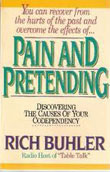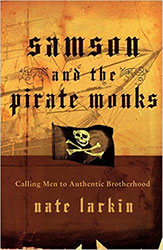| Russian | Ukrainian | |||||||

Home
Adult children (10) Boundaries (8) Codependency (9) Compulsive behavior (8) Dating and relationships (2) Depression (13) Divorce recovery (4) Dysfunctional family (11) Emotional problems (18) Forgiveness (7) Inner pain, struggle (11) Isolation, loneliness (13) Responsibility (8) Trust issues (8) Symptoms and difficulties of coming from a Dysfunctional FamilyAdults from dysfunctional families:1) guess at what normal behavior is 2) have difficulty following a project through from beginning to end 3) lie when it would be just as easy to tell the truth. They lie out of self preservation and usually about their feelings 4) judge themselves without mercy. Children in alcoholic/abusive families develop a fear of making mistakes or being "invisible". They walk on eggs in fear of results of doing something wrong 5) have difficult having fun. They have difficulty relaxing because of the hyper-vigilance of "being safe". Sometimes they are control of entertainment activities 6) take themselves very seriously. They tend to be overly sensitive because of brain structural changes (cingulate gyrus and amygdale) from the trauma 7) have difficulty with intimate relationships. Because of frequently emotionally destructive enmeshments in the alcoholic family, they develop "roles" that furthers the enmeshment and loss of self. The roles of "hero", "scapegoat", "lost child", or "clown" creates an image to maintain. Thus there is loss of being oneís real self. They fear getting close to others for fear of abandonment 8) overreact to changes which they have not control 9) constantly seek approval and affirmation 10) usually feel that they are different from other people. Terminal uniqueness is the disease where one feels that "certainly no one is going to understand my behavior or problems" 11) are super responsible or super irresponsible and sometimes both. They become hyper vigilant in response to their chaotic environment, again believing that their actions determine the behaviors of others. Children, who have an inordinate sense of self, feel that they are responsible for what goes on around them. Sometimes they give up an responsibility because nothing they do will ever be good enough. They often develop patterns in early childhood of trying to gain self-esteem from the outside world, seeking applause in place of love (overachievement), sometimes giving up and isolating, getting ill, beginning their own substance abuse patterns or "dropping out" (underachievement) 12) are extremely loyal even in the face of evidence that loyalty is undeserved 13) are impulsive. They tend to lock themselves into a course of action without giving serious consideration to alternative behaviors or possible consequences. This impulsivity leads to confusion, self-hatred, and loss of control over their environment. In addition, they spend an excessive amount of energy cleaning up the mess. Because of the turmoil and unpredictability in their early lives and subsequent survival roles developed, they frequently find themselves more comfortable with chaos than with quiet times. Keeping the chaos going or involving themselves in professions where turmoil exists, frequently staves off unresolved grief of the past 14) develop patterns of placation, seek approval, or isolate when faced with conflict because of fears of destructive anger or threat of violence experienced in childhood and also because of fear of their own unexpressed rage 15) often grew up in family systems that were unpredictable and unresponsive to the needs of children. Children grew up trusting themselves more than others in terms of self-care. Sometimes addictive behavior results from this "self-trust" and "self-care" 16) often grow up with a sense of total helplessness or a total sense of togetherness. Frequently these children gain control in their lives by believing that they cause the responses and behaviors of others. They may feel the victims feelings and try to rescue one parent from the other. This creates both a sense of helplessness as well as an inordinate sense of control over their environment. Example: "Itís my fault that mom and dad drink. If I was only better.." 17) develop the attitude early in life that I have no needs; I can do it myself, thank you. When needs are repeatedly not met or parents "arenít there" emotionally or physically, children learn to stop needing and in fact fear times of normal dependency 18) need to be in control. Fearing normal feelings leads to compulsive needs to control and live life as Sharon Wegscheider-Cruse states, "in a constant rehearsal for living" 19) have difficulty hearing the positives. Because of poor self images developed in childhood, either discount positive feedback from others, feel a sense of distrust for those complimenting them, or feel a deep feeling of pain or loss upon hearing positive things about themselves 20) are living in a black and white world. It is as if the addiction kills all the grey cells in the brain, leaving on the black and white. Rigidity and black and white thinking is learned from their parents 21) have poor self images and struggle with self worth 22) have compulsive behaviors and addiction. Often in attempts to continue delayed grief and pain from the past, they compulsively work, spend money, eat, exercise, sex, gamble, become addicted to relationships, or behave in other compulsive ways. Sadly, many adult children begin their own patterns of compulsive drinking or drug use 23) have a compulsive need to be right. Life is thought in terms of "right" and "wrong". Often the need to be always correct, appropriate, and "right" replaces an original desire to be loved 24) suffer from denial. It used to be thought that only the alcoholic was in denial. What is realized today is that all members of the alcoholic family suffer from denial. Denial is about unawareness. While being "unaware" protects them from the pain, it also keep the dysfunction going 25) have a fear of feeling. Expressing feelings or allowing feelings often was not safe or comfortable in an alcoholic's family. Children often were only allowed particular feelings Ė"happy", "fine", etc. If other feelings are expressed, they risked abandonment or angry outbursts from parents. Because they learned to numb out feelings in early childhood, they have lost the ability to feel or express emotion. Frequently good feelings, such as excitement, joy and happiness are sacrificed as well as feelings of anger or sadness. Some can cry but never allow feelings of anger, others can allow anger but never risk tears 26) have frequent periods of depression. Anger that is repressed can make us depressed and frequently all feelings of anger are turned against the child inside. Some show signs of depression in early childhood, difficulty sleeping, over or under-eating, nightmares, shoplifting, sleepwalking, difficulty in school, etc. and have chemical depression as well as delayed grief 27) have a fear of being their real self. If a person is like, they feel that "Iím fooling YOU," because children from dysfunctional families early on learn to please and relate to the world with acceptable images rather than true selves. There tends to be a felt discrepancy between what is felt inside and what is shown outside, thus leading to a belief that "if others really knew me, they wouldnít like me" 28) are hypersensitive to the needs of others. Survival in a dysfunctional family frequently meant being constantly aware of the most minor shifts in moods of adults leading the child to be far more aware of what others were doing and feeling than what was being felt inside 29) have repetitive relationship patterns in their adult lives. Internal beliefs and filters lead them to pick spouses and friends that replicate the childhood interactions with parents. They frequently they find themselves recreating the painful experiences of their childhood. Why? They are drawn to what is familiar and to what is known. There is a sense of need to overcoming, "trying to get my father to not drink or to love me". So, they pick an alcoholic to marry. Children from healthy families work out childhood traumas in the playroom while children from dysfunctional families find themselves working out painful traumas of the past in real life 30) have an inability to relax, let go and have fun. While other children were busy learning to relate, compete, play and develop social skills, children of dysfunctional families were learning the tough lessons of survival. Living becomes more difficult than continued survival and playing or having fun becomes terrifyingly stressful. The child inside is terrified still of making a mistake or doing it wrong. Letting go means being out of control After you reading this list, you might feel depressed because you identify with some of these symptoms. The point is not to label yourself and become a victim, but to identify and to work toward healing from the trait. As the trait is soften, transformed and even removed, one gains freedom. |


